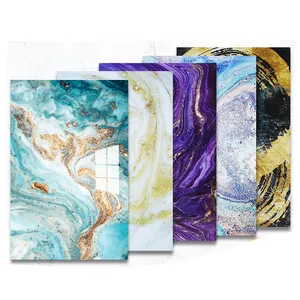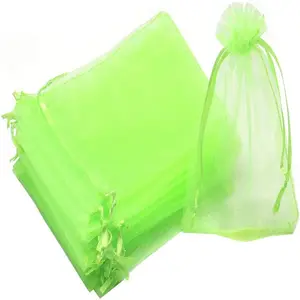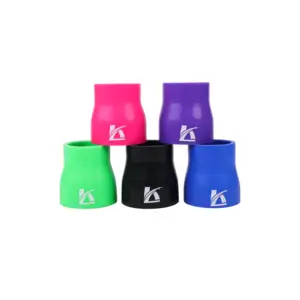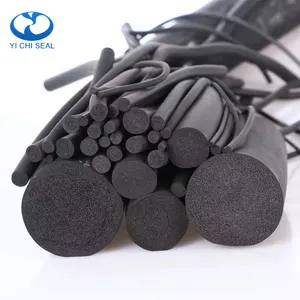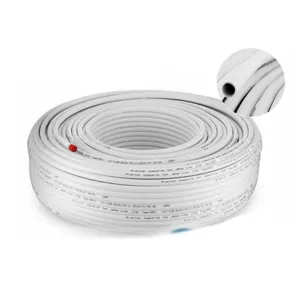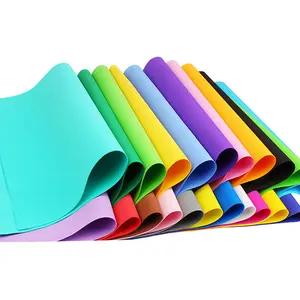Popular in your industry









































































Top categories
About epdm
What is EPDM?
EPDM, or Ethylene Propylene Diene Monomer, is a type of synthetic rubber that has gained widespread adoption across various industries due to its outstanding resistance to heat, weather, and environmental conditions. This durable material is composed of ethylene and propylene creating a copolymer, alongside a diene component that enables cross-linking, which is crucial for its elastic properties. EPDM is particularly known for its water and UV resistance, making it an ideal choice for outdoor applications.
Professionals in the construction, automotive, and industrial sectors commonly use EPDM for its versatile properties. The material performs exceptionally well in sealing and insulating applications due to its thermal stability and insulation capabilities. For instance, it can be found in weather stripping for windows and doors, roofing membranes, radiator hoses in vehicles, and various types of waterproofing sheets.
The functionality of EPDM stems from its ability to maintain integrity over a wide temperature range and resist degradation from UV rays, ozone, and harsh weather. This makes it suitable for both indoor and outdoor uses where prolonged exposure to the elements is expected. The resilience of EPDM not only ensures long-term performance but also contributes to the safety and sustainability of the projects it's employed in by reducing the need for frequent replacements.
Types of EPDM
EPDM materials are available in various forms to cater to different applications and requirements. Here's an overview of some common types:
EPDM Rubber: This is perhaps the most ubiquitous form of EPDM. It can be found in sheets or rolls and is used for roofing membranes or as liners for artificial bodies of water like ponds or reservoirs. In sports venues or playgrounds, EPDM rubber serves as a shock-absorbent surface material.
EPDM Granules: Often used in the creation of safety surfaces for playgrounds or running tracks, these granules provide a soft yet durable ground cover that can help prevent injuries and are available in multiple colors to create aesthetically pleasing designs.
EPDM Rubber Strips: These are designed for sealing applications in buildings, vehicles, and industrial machinery. They are excellent at noise reduction and provide insulation against cold and wind.
EPDM Rubber Cord: Round EPDM cords are used in various sealing applications where they fill gaps or provide waterproofing solutions. They are flexible and easy to install across different types of projects.
Custom-shaped EPDM Products: These include items like gaskets, washers, or plugs that are custom-molded to fit specific needs in machinery or equipment. They provide precise sealing capabilities in complex systems.
How to Choose EPDM
Selecting the right type of EPDM for your business involves considering several factors related to your specific application requirements. Here are some aspects to guide your decision:
Application: Determine where the EPDM will be used—whether it's for outdoor weatherproofing, industrial sealing, or as part of a sports facility. The application will guide whether you need sheeting, granules, strips, cords, or custom shapes.
Processing Service: Consider if your project requires pre-processing such as molding or cutting. Some suppliers may offer these services which can streamline your manufacturing process.
Material Compatibility: Ensure that the type of EPDM you choose is compatible with other materials it will come into contact with to avoid any chemical reactions that could degrade the rubber.
Color: For aesthetic projects like playgrounds or sports venues, color might be a significant factor. Ensure you have access to a range of color options if necessary.
After-sale Service: Depending on the scale of your project, after-sale services such as onsite installation or training might be crucial for ensuring proper use of the EPDM materials.
Project Solution Capability: If your project requires comprehensive solutions including design support or cross-category consolidation, look for suppliers who can offer these capabilities.
Features: Lastly, consider specific features like eco-friendliness, UV resistance, durability, non-toxicity—features that ensure the safety and longevity of the product in your specific environment.
Best EPDM on Alibaba.com
For businesses seeking high-quality EPDM solutions, Alibaba.com stands out as a comprehensive marketplace catering to diverse commercial needs. With its extensive network of suppliers from around the globe offering a vast array of EPDM products—from sheets to custom-molded items—businesses can conveniently source materials tailored to their unique specifications. Alibaba.com's robust platform facilitates seamless transactions where buyers can communicate with suppliers directly to discuss custom requirements or bulk purchases.
Alibaba.com's commitment towards facilitating global trade is evident through its user-friendly features like mobile buying assistance and support for local languages. Furthermore, Alibaba.com's Trade Assurance service underscores its focus on secure transactions by protecting payments until delivery completion—ensuring peace of mind for buyers who invest in large quantities of goods for their commercial projects.
The wide selection on Alibaba.com spans numerous applications such as aquaculture liners, gym flooring options, industrial seals, and many more—all underpinned by a promise of diversity without compromising on quality. By choosing Alibaba.com for sourcing EPDM products, businesses are empowered with not just materials but also with the tools necessary to thrive in an ever-evolving global market.
Common FAQs for EPDM
What is EPDM and what are its core properties?
EPDM, or Ethylene Propylene Diene Monomer, is a synthetic rubber known for its excellent resistance to heat, UV rays, ozone, and weather conditions. It maintains its integrity over a wide temperature range, making it ideal for various applications.
In what forms is EPDM available?
EPDM is available in multiple forms such as sheets, rolls, granules, strips, cords, and custom-molded shapes to suit different industrial and commercial applications.
Can EPDM be used for outdoor applications?
Yes, due to its weather-resistant properties, EPDM is particularly well-suited for outdoor applications such as roofing membranes, liners for ponds and reservoirs, and safety surfaces for playgrounds.
What industries commonly use EPDM materials?
EPDM is widely used in the automotive, construction, and industrial sectors. It's also employed in sports venues and playgrounds due to its shock-absorbent properties.
Is EPDM eco-friendly?
EPDM can be considered eco-friendly due to its durability and longevity which reduce the need for frequent replacements. Specific eco-friendly grades of EPDM may also be available depending on the supplier.
How do I choose the right type of EPDM for my project?
Selecting the right EPDM involves considering the application, material compatibility, required processing services like molding or cutting, color options if necessary, after-sale services offered by the supplier, and any special features needed such as UV resistance or non-toxicity.
Are there color options available for EPDM materials?
Yes, EPDM granules and some other forms of EPDM materials come in various colors which are especially useful for aesthetic projects like playgrounds or athletic tracks.
What processing services are commonly offered with EPDM materials?
Common processing services offered include molding and cutting to help fit specific design requirements or to ease the installation process.
Can EPDM be customized to specific shapes and sizes?
Yes, suppliers often offer customization services such as OBM (Original Brand Manufacturing), ODM (Original Design Manufacturing), and OEM (Original Equipment Manufacturer) to create EPDM products tailored to unique specifications.
What features should I consider when selecting EPDM for my business?
Consider features such as eco-friendliness, waterproofing, anti-slip properties, durability, anti-UV capabilities, non-toxicity, and anti-aging depending on the demands of your specific application.
How does EPDM perform in extreme temperatures?
EPDM maintains its elastic properties and resistance to degradation across a broad temperature range, making it suitable for environments experiencing extreme heat or cold.
Is it possible to get after-sale services like onsite installation for EPDM materials?
While onsite services depend on the supplier's capabilities, many do offer a range of after-sale services including onsite installation, training, inspection, as well as return and replacement policies.
